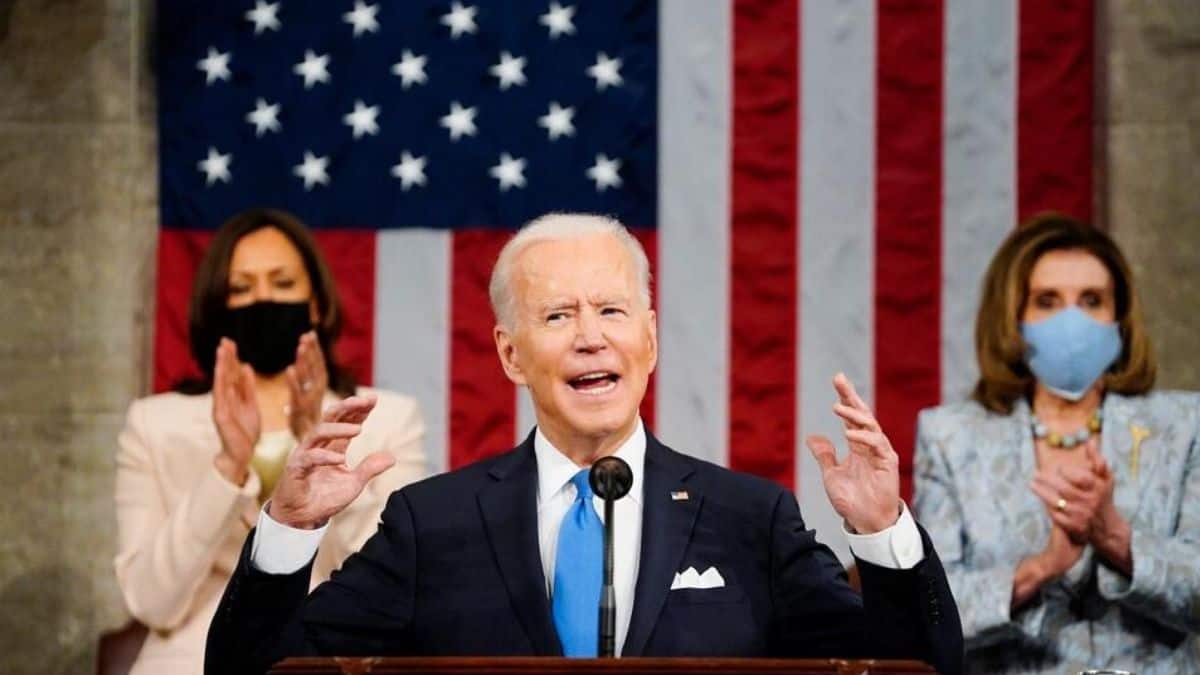Russia Ukraine War : How US will be the only one to Ban oil Imports from Russia
The move comes after Ukrainian President Volodymyr Zelenskyy pleaded with US and Western officials to halt the imports, which had been a glaring omission in the huge sanctions imposed on Russia in the aftermath of the invasion.

According to a source acquainted with the situation, President Joe Biden has decided to impose a restriction on Russian oil imports, putting more pressure on Russia’s economy in retribution for its invasion of Ukraine.
The move comes after Ukrainian President Volodymyr Zelenskyy pleaded with US and Western officials to halt the imports, which had been a glaring omission in the huge sanctions imposed on Russia in the aftermath of the invasion. Despite other severe constraints on Russia’s banking industry, energy exports have maintained a continuous infusion of cash flowing.
Biden was expected to make the announcement as early as Tuesday, according to the source, who spoke on the condition of anonymity to discuss the topic ahead of his speech. Biden will announce “measures to continue to hold Russia accountable for its unprovoked and illegitimate aggression on Ukraine,” according to the White House.
The United States will act alone, but in close coordination with European partners who rely more on the Russian energy supply. European countries have stated that they intend to lessen their energy reliance on Russia, but filling the hole without damaging their economy would take time. Natural gas from Russia contributes to one-third of Europe’s fossil-fuel use. Russian natural gas is not imported into the United States.
At the onset of the crisis two weeks ago, Biden explained his reluctance to implement energy restrictions, saying he was attempting “to reduce the agony the American people are feeling at the petrol pump.”
Gas prices have been climbing for weeks as a result of the conflict and the threat of sanctions against Russia’s energy sector. According to AAA, the national average cost of a gallon of gasoline in the United States increased 45 cents in the last week and reached $4.06 on Monday.
According to Rystad Energy, the United States imports roughly 100,000 barrels per day from Russia, accounting for only about 5% of Russia’s crude oil exports. Russia supplied about 8% of all oil and petroleum products imported into the United States last year.
Many Western oil corporations, notably ExxonMobil and BP, broke connections with Russia and limited imports even before the US ban. Shell, which bought a supply of Russian oil over the weekend, apologized for the move on Tuesday in the face of international condemnation and promised to stop buying Russian energy supplies in the future. According to preliminary figures from the US Energy Department, Russian crude imports fell to zero in the last week of February.
“It’s an important step to show Russia that energy is on the table,” said Max Bergmann, a former State Department official who is now a senior fellow at the Democratic-leaning Center for American Progress.
It’s not unexpected, according to Bergmann, that the United States was able to take this step ahead of Europe, which is more reliant on Russian energy.
“All of this is being done in coordination, even if the steps are not symmetrical,” he said. “We are talking to them constantly.”
Biden’s decision of banning Russian Oil imports was first reported by Bloomberg.
Russian oil and gas accounted for more than a third of government revenue prior to the invasion. After the invasion, global energy prices soared, and they have continued to increase despite coordinated releases of strategic reserves, making Russian exports even more profitable.
As a result of Russia’s invasion of Ukraine, the United States and its international partners have sanctioned Russia’s main banks, central bank, and finance ministry, as well as tried to restrict specific financial institutions from using the SWIFT international payment messaging system.
However, the Treasury Department’s rules allow Russian energy transactions to continue to be processed through non-US sanctioned institutions in order to avoid any disruptions to global energy markets.
Those Russian energy carve-outs were highlighted by Biden as a virtue because they would assist to safeguard American families and businesses from rising prices.
“Our sanctions package we specifically designed to allow energy payments to continue,” he said. Biden’s actions Tuesday were not expected to affect other nations’ energy payments to Russia.
Inflation, which is at a 40-year high and is caused in large part by rising gas prices, has harmed Biden’s electoral standing ahead of the November elections.
The penalties forced the president to choose between his domestic and international political goals. Russia’s invasion of Ukraine might exacerbate supply chain issues and inflation, which have been a major vulnerability for Biden, who is now attempting to find a balance between punishing Putin and sparing American voters.
While Russian oil accounts for a modest percentage of total US energy imports, the US might replace it with crude from other oil-rich countries, but this could be politically difficult.
Senators from both parties are advising the Biden administration against negotiating an oil import deal with Venezuela’s Nicolas Maduro regime.
“The Biden administration’s efforts to unify the entire world against a murderous tyrant in Moscow should not be undercut by propping up a dictator under investigation for crimes against humanity in Caracas,” said Sen. Bob Menendez, D-N.J., the chairman of the Foreign Relations Committee, in a statement late Monday. “The democratic aspirations of the Venezuelan people, much like the resolve and courage of the people of Ukraine, are worth much more than a few thousand barrels of oil.”


